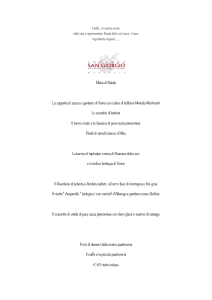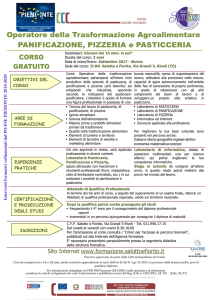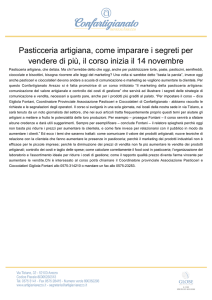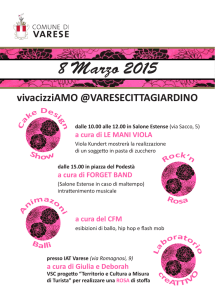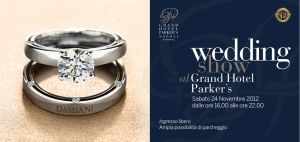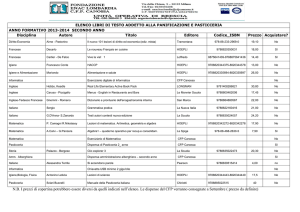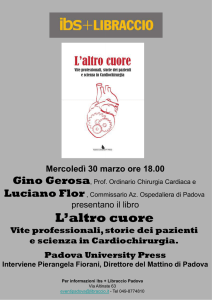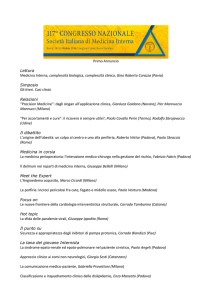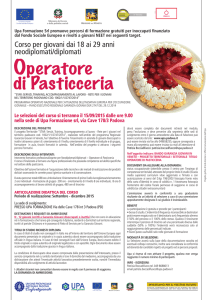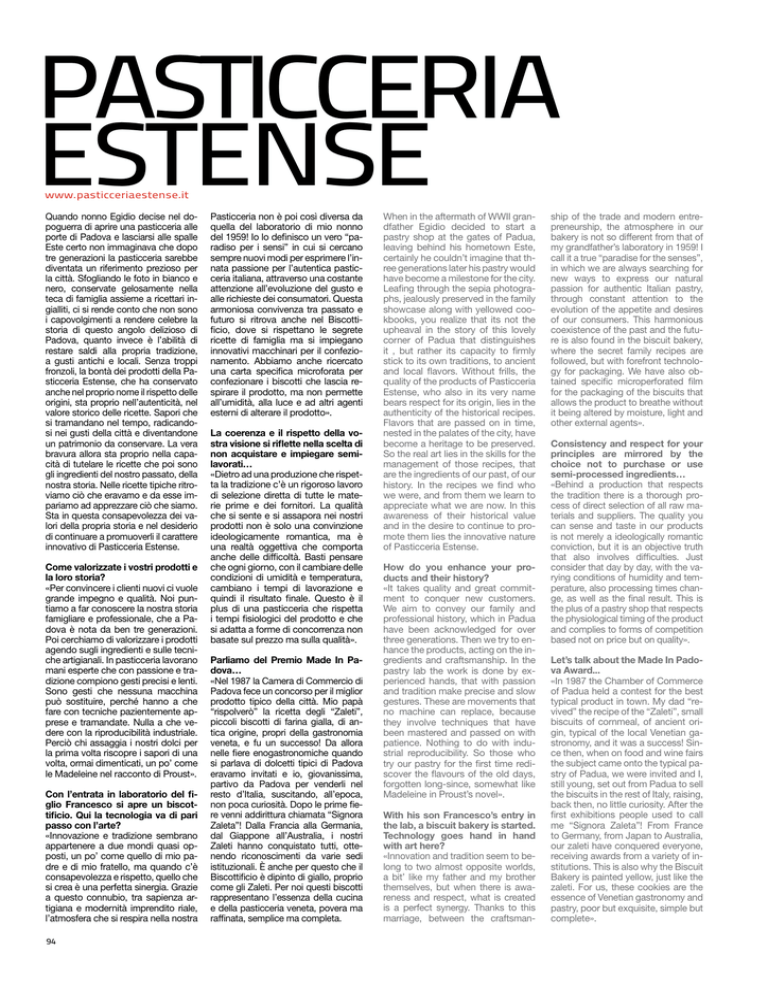
PASTICCERIA
ESTENSE
www.pasticceriaestense.it
Quando nonno Egidio decise nel dopoguerra di aprire una pasticceria alle
porte di Padova e lasciarsi alle spalle
Este certo non immaginava che dopo
tre generazioni la pasticceria sarebbe
diventata un riferimento prezioso per
la città. Sfogliando le foto in bianco e
nero, conservate gelosamente nella
teca di famiglia assieme a ricettari ingialliti, ci si rende conto che non sono
i capovolgimenti a rendere celebre la
storia di questo angolo delizioso di
Padova, quanto invece è l’abilità di
restare saldi alla propria tradizione,
a gusti antichi e locali. Senza troppi
fronzoli, la bontà dei prodotti della Pasticceria Estense, che ha conservato
anche nel proprio nome il rispetto delle
origini, sta proprio nell’autenticità, nel
valore storico delle ricette. Sapori che
si tramandano nel tempo, radicandosi nei gusti della città e diventandone
un patrimonio da conservare. La vera
bravura allora sta proprio nella capacità di tutelare le ricette che poi sono
gli ingredienti del nostro passato, della
nostra storia. Nelle ricette tipiche ritroviamo ciò che eravamo e da esse impariamo ad apprezzare ciò che siamo.
Sta in questa consapevolezza dei valori della propria storia e nel desiderio
di continuare a promuoverli il carattere
innovativo di Pasticceria Estense.
Come valorizzate i vostri prodotti e
la loro storia?
«Per convincere i clienti nuovi ci vuole
grande impegno e qualità. Noi puntiamo a far conoscere la nostra storia
famigliare e professionale, che a Padova è nota da ben tre generazioni.
Poi cerchiamo di valorizzare i prodotti
agendo sugli ingredienti e sulle tecniche artigianali. In pasticceria lavorano
mani esperte che con passione e tradizione compiono gesti precisi e lenti.
Sono gesti che nessuna macchina
può sostituire, perché hanno a che
fare con tecniche pazientemente apprese e tramandate. Nulla a che vedere con la riproducibilità industriale.
Perciò chi assaggia i nostri dolci per
la prima volta riscopre i sapori di una
volta, ormai dimenticati, un po’ come
le Madeleine nel racconto di Proust».
Con l’entrata in laboratorio del figlio Francesco si apre un biscottificio. Qui la tecnologia va di pari
passo con l’arte?
«Innovazione e tradizione sembrano
appartenere a due mondi quasi opposti, un po’ come quello di mio padre e di mio fratello, ma quando c’è
consapevolezza e rispetto, quello che
si crea è una perfetta sinergia. Grazie
a questo connubio, tra sapienza artigiana e modernità imprendito riale,
l’atmosfera che si respira nella nostra
94
Pasticceria non è poi così diversa da
quella del laboratorio di mio nonno
del 1959! Io lo definisco un vero “paradiso per i sensi” in cui si cercano
sempre nuovi modi per esprimere l’innata passione per l’autentica pasticceria italiana, attraverso una costante
attenzione all’evoluzione del gusto e
alle richieste dei consumatori. Questa
armoniosa convivenza tra passato e
futuro si ritrova anche nel Biscottificio, dove si rispettano le segrete
ricette di famiglia ma si impiegano
innovativi macchinari per il confezionamento. Abbiamo anche ricercato
una carta specifica microforata per
confezionare i biscotti che lascia respirare il prodotto, ma non permette
all’umidità, alla luce e ad altri agenti
esterni di alterare il prodotto».
La coerenza e il rispetto della vostra visione si riflette nella scelta di
non acquistare e impiegare semilavorati…
«Dietro ad una produzione che rispetta la tradizione c’è un rigoroso lavoro
di selezione diretta di tutte le materie prime e dei fornitori. La qualità
che si sente e si assapora nei nostri
prodotti non è solo una convinzione
ideologicamente romantica, ma è
una realtà oggettiva che comporta
anche delle difficoltà. Basti pensare
che ogni giorno, con il cambiare delle
condizioni di umidità e temperatura,
cambiano i tempi di lavorazione e
quindi il risultato finale. Questo è il
plus di una pasticceria che rispetta
i tempi fisiologici del prodotto e che
si adatta a forme di concorrenza non
basate sul prezzo ma sulla qualità».
Parliamo del Premio Made In Padova…
«Nel 1987 la Camera di Commercio di
Padova fece un concorso per il miglior
prodotto tipico della città. Mio papà
“rispolverò” la ricetta degli “Zaleti”,
piccoli biscotti di farina gialla, di antica origine, propri della gastronomia
veneta, e fu un successo! Da allora
nelle fiere enogastronomiche quando
si parlava di dolcetti tipici di Padova
eravamo invitati e io, giovanissima,
partivo da Padova per venderli nel
resto d’Italia, suscitando, all’epoca,
non poca curiosità. Dopo le prime fiere venni addirittura chiamata “Signora
Zaleta”! Dalla Francia alla Germania,
dal Giappone all’Australia, i nostri
Zaleti hanno conquistato tutti, ottenendo riconoscimenti da varie sedi
istituzionali. È anche per questo che il
Biscottificio è dipinto di giallo, proprio
come gli Zaleti. Per noi questi biscotti
rappresentano l’essenza della cucina
e della pasticceria veneta, povera ma
raffinata, semplice ma completa.
When in the aftermath of WWII grandfather Egidio decided to start a
pastry shop at the gates of Padua,
leaving behind his hometown Este,
certainly he couldn’t imagine that three generations later his pastry would
have become a milestone for the city.
Leafing through the sepia photographs, jealously preserved in the family
showcase along with yellowed cookbooks, you realize that its not the
upheaval in the story of this lovely
corner of Padua that distinguishes
it , but rather its capacity to firmly
stick to its own traditions, to ancient
and local flavors. Without frills, the
quality of the products of Pasticceria
Estense, who also in its very name
bears respect for its origin, lies in the
authenticity of the historical recipes.
Flavors that are passed on in time,
nested in the palates of the city, have
become a heritage to be preserved.
So the real art lies in the skills for the
management of those recipes, that
are the ingredients of our past, of our
history. In the recipes we find who
we were, and from them we learn to
appreciate what we are now. In this
awareness of their historical value
and in the desire to continue to promote them lies the innovative nature
of Pasticceria Estense.
How do you enhance your products and their history?
«It takes quality and great commitment to conquer new customers.
We aim to convey our family and
professional history, which in Padua
have been acknowledged for over
three generations. Then we try to enhance the products, acting on the ingredients and craftsmanship. In the
pastry lab the work is done by experienced hands, that with passion
and tradition make precise and slow
gestures. These are movements that
no machine can replace, because
they involve techniques that have
been mastered and passed on with
patience. Nothing to do with industrial reproducibility. So those who
try our pastry for the first time rediscover the flavours of the old days,
forgotten long-since, somewhat like
Madeleine in Proust’s novel».
With his son Francesco’s entry in
the lab, a biscuit bakery is started.
Technology goes hand in hand
with art here?
«Innovation and tradition seem to belong to two almost opposite worlds,
a bit’ like my father and my brother
themselves, but when there is awareness and respect, what is created
is a perfect synergy. Thanks to this
marriage, between the craftsman-
ship of the trade and modern entrepreneurship, the atmosphere in our
bakery is not so different from that of
my grandfather’s laboratory in 1959! I
call it a true “paradise for the senses”,
in which we are always searching for
new ways to express our natural
passion for authentic Italian pastry,
through constant attention to the
evolution of the appetite and desires
of our consumers. This harmonious
coexistence of the past and the future is also found in the biscuit bakery,
where the secret family recipes are
followed, but with forefront technology for packaging. We have also obtained specific microperforated film
for the packaging of the biscuits that
allows the product to breathe without
it being altered by moisture, light and
other external agents».
Consistency and respect for your
principles are mirrored by the
choice not to purchase or use
semi-processed ingredients…
«Behind a production that respects
the tradition there is a thorough process of direct selection of all raw materials and suppliers. The quality you
can sense and taste in our products
is not merely a ideologically romantic
conviction, but it is an objective truth
that also involves difficulties. Just
consider that day by day, with the varying conditions of humidity and temperature, also processing times change, as well as the final result. This is
the plus of a pastry shop that respects
the physiological timing of the product
and complies to forms of competition
based not on price but on quality».
Let’s talk about the Made In Padova Award...
«In 1987 the Chamber of Commerce
of Padua held a contest for the best
typical product in town. My dad “revived” the recipe of the “Zaleti”, small
biscuits of cornmeal, of ancient origin, typical of the local Venetian gastronomy, and it was a success! Since then, when on food and wine fairs
the subject came onto the typical pastry of Padua, we were invited and I,
still young, set out from Padua to sell
the biscuits in the rest of Italy, raising,
back then, no little curiosity. After the
first exhibitions people used to call
me “Signora Zaleta”! From France
to Germany, from Japan to Australia,
our zaleti have conquered everyone,
receiving awards from a variety of institutions. This is also why the Biscuit
Bakery is painted yellow, just like the
zaleti. For us, these cookies are the
essence of Venetian gastronomy and
pastry, poor but exquisite, simple but
complete».
96
IN QUESTA PAGINA PAOLO LUNI E IL FIGLIO FRANCESO RITRATTI DURANTE
IL LAVORO NEL BISCOTTIFICIO. QUI NEL RISPETTO DELLE VECCHIE RICETTE
DI FAMIGLIA SI LAVORANO ARTIGIANALMENTE I PRODOTTI TIPICI DELLA
TRADIZIONE VENETA, COME I FAMOSI “ZALETI”.
ON THIS PAGE PAOLO LUNI WITH HIS SON FRANCESCO PORTRAYED AT
WORK IN THE BISCUIT BAKERY. HERE, IN COMPLIANCE WITH THE OLD
FAMILY RECIPES, TYPICAL DELICACIES OF THE TRADITION OF THE VENETO
ARE MADE BY HAND, SUCH AS THE FAMOUS “ZALETI”.
97

